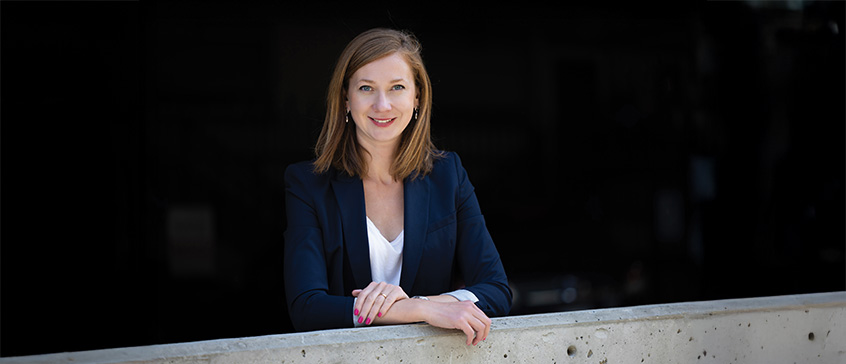More than a language: exploring Russian culture and connection

by Portia Yip, Marketing Services
Did you know that approximately 258 million people speak Russian? Or that Russian is one of the top 10 most spoken languages in the world?
In Galina Sanaeva’s Russian language course at Continuing Studies at UVic, students don’t just learn the language—they explore Russia’s rich history and vibrant culture. For Galina, teaching others came naturally from an early age. “I started teaching when I was in my third year of university and it was a very versatile experience,” she says. “Today I teach not only adults and foreign language learners, but bilingual children and ‘heritage learners’ as well.”
Fluent in Russian, Polish and English, Galina holds a Master of Education and a PhD specializing in teaching languages and literature. She is also an accomplished researcher with 14 published articles and several published translations, including a co-authored book in her name. “I love research, the etymology of words, and sharing the knowledge with my students.”
At the beginning of her courses, Galina asks her students, “why Russian?” Surprisingly, around 90 to 95% of her students do not have Russian relatives or a Russian background. “They choose Russian because of its rich culture, and because of the language itself,” she explains. “It’s a different language group, and many students are fascinated by Russian culture, music, ballet or literature.”
Creating connection through culture


Many students are fascinated by Russian culture, music, ballet or literature.
Though learning Cyrillic, the Russian alphabet, may seem challenging for beginners, Galina ensures her students are never bored. By using culture in her classes and keeping students engaged with audio and video resources, like memes and humour, she creates a lively and enjoyable learning environment.
From Yellowknife, NWT to the island of Mauritius, students from all around the world are taking Russian language courses at Continuing Studies. Last year, two of Galina’s students won the XIII International Pushkin Competition for their poetry reading. “It’s a big achievement and I’m very proud,” Galina shares. “My students learned Russian from scratch in level one and two, and they don’t have any Russian family or background, yet they travelled to Russia for a few months and were able to get by.”
Building bridges between worlds
As a continuous learner herself, Galina is currently learning more about the concept of mediation which has been introduced as a key language competency by the Common European Framework of Reference for Languages (CEFR). “It’s not just about understanding and speaking a language, but also about passing on, explaining and translating information for others. It connects two parties, often making difficult ideas easier to understand,” Galina describes. “Think of it as someone who helps one person understand what another person is saying, in the language this person is learning.”
 Galina teaches Russian at every level of proficiency. Some students return to her classes multiple times, since each experience is unique, with new activities and exercises tailored to their goals. Citing the words of famous film director Federico Fellini, “a different language is a different vision of life,” Galina emphasizes that teaching the language isn’t just about technique; it’s also about embracing the experience of human connection.
Galina teaches Russian at every level of proficiency. Some students return to her classes multiple times, since each experience is unique, with new activities and exercises tailored to their goals. Citing the words of famous film director Federico Fellini, “a different language is a different vision of life,” Galina emphasizes that teaching the language isn’t just about technique; it’s also about embracing the experience of human connection.
“Russian is beautiful and it’s more than just a language. Any language we learn is a way to connect to people—we learn a whole new world, we learn to understand people better, and we learn to think differently.”
About the instructor
Galina Sanaeva is a certified Russian language instructor, educator, researcher and translator. Galina was born and raised in Russia.
Galina started teaching in 2003. Galina is an active member of the International Association of Teachers of Russian Language and Literature (MAPRYAL) and American Council of Teachers of Russian (ACTR).
Her experience as a researcher includes 14 papers published in Russia, Poland, Canada and Ukraine; several published translations; editorial works; and one book she wrote as a co-author.
- Posted July 25, 2025
RELATED TOPICS: World Languages
Visit Registration
2nd Floor | Continuing Studies Building University of Victoria Campus 3800 Finnerty Road | Victoria BC | CanadaTel 250-472-4747 | Email uvcsreg@uvic.ca
2026 © Continuing Studies at UVic
Legal Notices |
Sitemap


